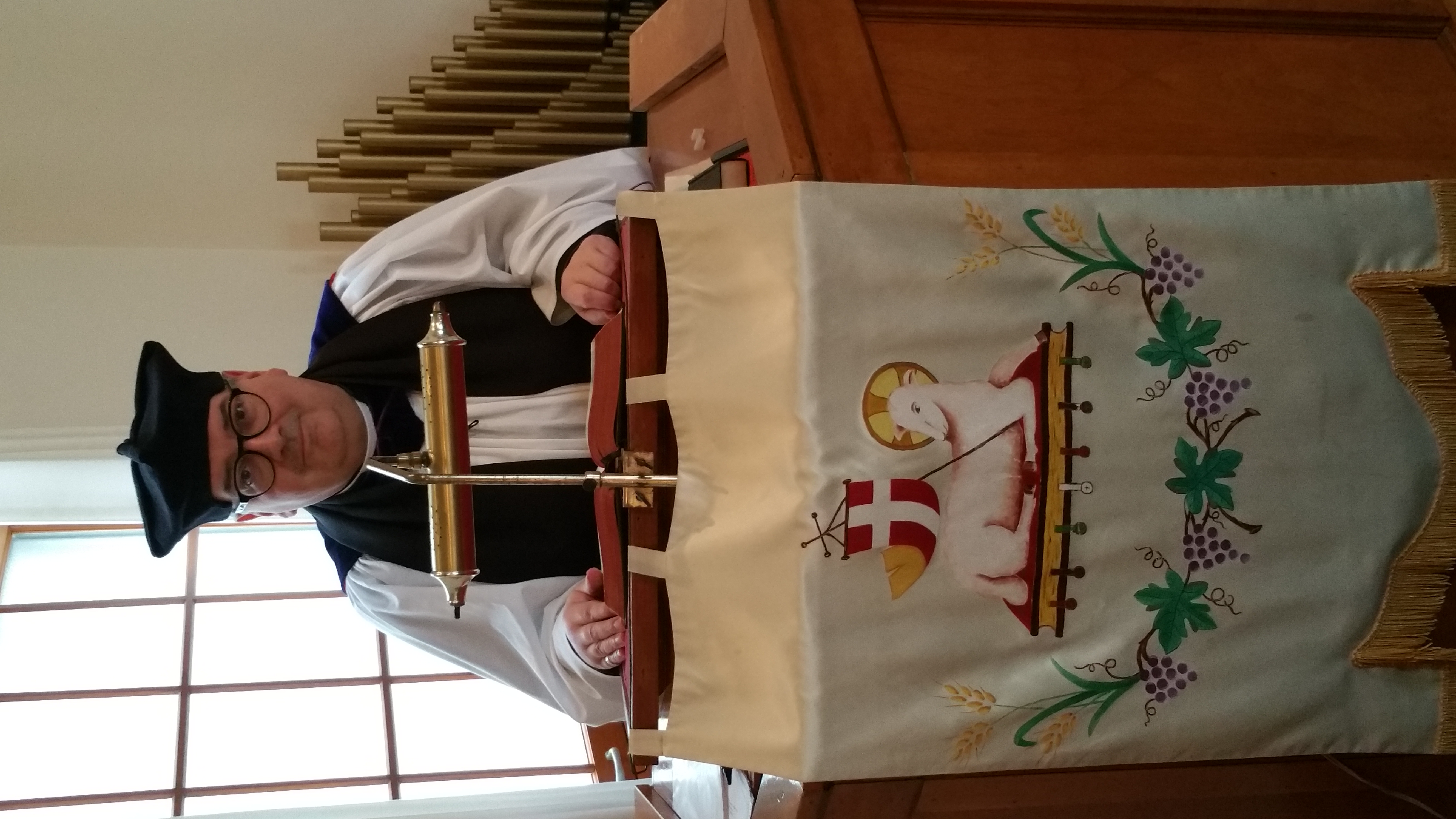
Anglican ministry
The Anglican ministry is both the leadership and agency of Christian service in the Anglican Communion. Ministry commonly refers to the office of ordained clergy: the threefold order of bishops, priests and deacons. More accurately, Anglican ministry includes many laypeople who devote themselves to the ministry of the church, either individually or in lower/assisting offices such as lector, acolyte, sub-deacon, Eucharistic minister, cantor, musicians, parish secretary or assistant, warden, vestry member, etc. Ultimately, all baptized members of the church are considered to partake in the ministry of the Body of Christ.[1]
Each of the provinces (usually corresponding to individual world nations) of the Anglican Communion has a high degree of independence from the other provinces, and each of them have slightly different structures for ministry, mission and governance. However, personal leadership is always vested in a member of the clergy (a bishop at provincial and diocesan levels, and a priest (often termed a rector or pastor at the parish level) and consensus derived by synodical government. At different levels of the church's structure, laity, clergy (priests/pastors and deacons) and bishops meet together with prayer to deliberate over church governance. These gatherings are variously called conferences, synods, general or church-wide conventions, convocations, councils, chapters and vestries.
History and background[edit]
The effect of Henry VIII's Act in Restraint of Appeals and first Act of Supremacy was to establish royal authority in all matters spiritual and temporal, even assigning the power of ecclesiastical visitation over the Church in the English Realm.[2] Queen Elizabeth I, while declining the title of Supreme Head, was declared to be "Supreme Governor of this realm ... as well in all spiritual or ecclesiastical things or causes as temporal".[3] Thus, although the Church of England was regarded in the sixteenth century as a church of the Reformation,[4] it nonetheless maintained the historic church structure, including the maintenance of the threefold order of the ministry, with bishops, consecrated in apostolic succession, ordaining deacons, and priests. Thus, Anglican ordained ministry resembles that found in churches of the Catholic tradition (see Minister (Catholic Church)). While the Puritan ascendency in England briefly introduced a parallel presbyterian polity, Anglicanism worldwide is defined in part by the historic structure, although outside the British Isles it has no supreme governor. According to the Roman Catholic Church the Anglican Church has neither valid priests nor valid bishops as per the papal bull of 1896 (Apostolicae Curae), all Anglican orders are "absolutely null and utterly void".
In recent years, due to increasing theological differences within the Anglican Communion, there have been a number of instances of "valid but irregular" ordinations performed by clergy acting outside the normal authority structures of the church.
Under the Overseas and Other Clergy (Ministry and Ordination) Measure 1967 the Church of England "recognizes and accepts" as valid the orders of two churches which, although Anglican in identity, are not members of the Anglican Communion: the Church of England in South Africa and the Free Church of England.
In Anglican sacramental theology, certain ministerial functions can only be performed by individuals ordained into one or more of the three holy orders. There are two kinds of ministers in this sense. The ordinary minister of a sacrament has both the spiritual power to perform the sacrament (i.e. a valid sacrament) and the legal authority to perform the sacrament (i.e. a licit sacrament). An extraordinary minister has the spiritual power but may only perform the sacrament in certain special instances under canon law (i.e. emergencies). If a person who is neither an ordinary nor an extraordinary minister attempts to perform a sacrament, no preternatural effect happens (i.e. the putative sacrament is not merely illicit, but invalid).
In the Anglican Communion, the following are ministers of the sacraments ("clergy" refers to either a deacon, priest, or bishop):
Lay ministers[edit]
Licensed lay ministers[edit]
Certain laypeople may receive specific commission or authorisation from a bishop (often on recommendation of a parish or its clergy) to perform certain aspects of ministry. The rationale for licensing is that the ministry is considered too specialised or otherwise extraordinary to be carried out in the absence of individual evaluation and recommendation. There is variation across jurisdictions, but there are four common areas.